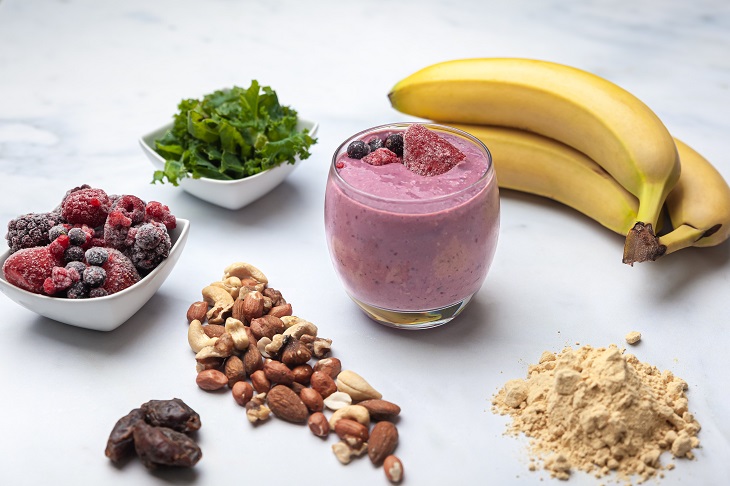THE DAILY DOSE
Which 7 Vitamins Are Most People Lacking?

For many Americans, getting the proper nutrition can be difficult. Between heavily processed diets and limited time due to demanding lifestyles, the ability to get everything your body needs on a daily basis can be an uphill battle. This is why people often suffer from nutrient deficiencies.
Nutrient deficiencies can lead to a variety of chronic health issues that could be addressed by simply upping the intake of vitamins and minerals that the body needs for its many processes. The good news is that it’s not hard to fix a nutritional deficiency as long as you know what signs to look out for. So which vitamins are most people lacking? Read on to find out.
How do I know which vitamins I’m lacking?
The body is a smart system. It works symbiotically, meaning that all its processes rely on each other to run smoothly. The digestive system, for example, needs to function optimally in order for the body to process nutrients appropriately. Without the digestive tract’s ability to absorb nutrients, the other systems within the body will not get the vitamins and minerals they need to do their jobs.
There are many signs your body might give you if you are lacking in nutrients. For example, brittle hair and nails could be a sign that the body is lacking biotin. Other hints that the body will give you when it’s starved for nutrients include:
- Mouth ulcers or cracks in the corners of the mouth
- Bleeding gums
- White growths on eyes and difficulties seeing at night
- Scaly patches of skin or dandruff
- Hair loss
- Red or white bumps on the skin
- Restless leg syndrome
- Fatigue or low on energy
- Frequent infections
These are just some general signs; specific vitamin deficiencies will present with different symptoms.

Vitamin deficiency diseases
A wide variety of diseases are linked to nutrient deficiency, most of which can be typically addressed with adequate intake. For example, anemia can occur in those who do not get enough vitamin B12; however, if adequate levels are restored, the disease itself will be treated effectively.
Some other common vitamin deficiency diseases and their causes include:
- Night blindness caused by a lack of vitamin A
- Beriberi caused by a lack of vitamin B1
- Scurvy caused by a lack of vitamin C
- Rickets caused by a lack of vitamin D
- Pellagra caused by a lack of vitamin B3
These are just a few of the health conditions that can arise from a lack of nutrients in the diet. However, they are also diseases that can be addressed by returning adequate levels of the vitamin itself into the body over long-term treatment.
What is the most common nutritional deficiency in the United States?
According to a report released by the CDC, there are quite a few nutritional deficiencies among the population of the United States. The most common was found to be vitamin B6. This water-soluble vitamin is also known as pyridoxine and plays a significant role in the metabolism of fat, carbohydrates, and protein. It also helps the body create red blood cells and neurotransmitters. Since the body doesn’t produce this vitamin on its own, it can be easy to become deficient if you are not getting enough from food or supplements.
The best way to get vitamin B6 from food is by eating foods that are rich in the nutrient. Some such foods include:
- Pork
- Poultry
- Fish
- Peanuts
- Soya beans
- Oats
- Bananas
If diet is not enough, supplementation may be required to help keep levels of vitamin B6 where they need to be for overall health and wellness.
Most common nutrient deficiencies
Besides vitamin B6, there are six other common nutrient deficiencies that people suffer from. Each will come with its own set of symptoms to look out for so you can tell if you may need to get more in your diet.
Vitamin A
Vitamin A deficiency can lead to an impairment in the function of the immune system, rashes, and ocular effects. If you notice any changes in the way your eyes adjust to light or dark, it could be time to investigate a vitamin A deficiency.
Vitamin B12
Anemia tends to be the result of a vitamin B12 deficiency, which presents with symptoms such as chronic fatigue, weakness, pale skin, dizziness, and chest pain.
Vitamin D
Vitamin D, otherwise known as the sunshine vitamin, is important for a lot of reasons. It helps the body absorb other nutrients such as calcium and phosphorous which are vital to bone health. Symptoms of a deficiency can include fatigue, depression, and muscle aches and weakness.
Calcium
If calcium deficiency lasts for a long period of time it can lead to health issues surrounding the teeth, bones, and even the brain. Symptoms of a calcium deficiency include tingling in the lips, tongue, fingers, and feet; muscle aches and spasms; seizures; and abnormal heart rhythms.
Iron
Iron is important for red blood cell health. There are two types of iron: heme, which is very well absorbed and found in meats, and non-heme, which is in both animal and plant foods but isn’t as bioavailable. Iron deficiency can also lead to anemia and symptoms include fatigue, weakness, decreased immune function, and lowered brain function.
Magnesium
Magnesium is important for many processes within the body and is an essential component to bone and teeth health. Some symptoms of a deficiency in this mineral are restless leg syndrome, fatigue, and migraines.

How to remedy nutrient deficiencies
The easiest way to address nutrient deficiencies is by adding foods to your diet that are rich in the particular vitamin you’re lacking, or by using supplementation. Supplementation may be necessary as a first course of treatment if the deficiency is particularly high. To ensure that your symptoms don’t stem from an underlying health condition, getting vitamin and nutrient levels checked is the first step on the road to fixing a vitamin deficiency.
The essential vitamins and minerals the body needs aren’t always easy to get through diet alone, but between changing your diet and increasing supplementation, you can address any nutrient deficiencies and get back to being healthy in no time.
Featured image by Adam Neiścioruk on Unsplash